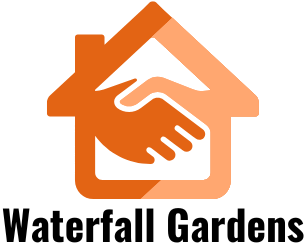In the great debate of renting an apartment versus buying a house, one question looms large: should you commit to a mortgage or enjoy the freedom of a landlord? It’s a dilemma as classic as cats vs. dogs or pineapple on pizza. On one hand, renting offers flexibility and fewer responsibilities, like avoiding those pesky maintenance costs. On the other, buying a house builds equity and gives you the ultimate bragging rights at dinner parties.
Table of Contents
ToggleUnderstanding Renting an Apartment Vs Buying a House
Renting an apartment offers flexibility, appealing to individuals who value mobility. Renters typically experience fewer responsibilities, as landlords often handle maintenance and repairs. The commitment is short-term, allowing for easier relocation in response to job changes or personal circumstances.
In contrast, buying a house builds equity and creates long-term investment opportunities. Homeowners can customize their living spaces, reflecting personal preferences and lifestyles. Stability also plays a role since homeowners often feel a stronger connection to their community.
Costs associated with each option differ significantly. Renting generally requires a security deposit, first month’s rent, and monthly payments. Homeownership involves substantial upfront costs, including down payments and closing costs, alongside ongoing expenses like property taxes and maintenance.
Market conditions greatly influence the decision as well. Renting may seem more appealing in a volatile housing market, where prices fluctuate rapidly. Conversely, a buyer’s market with lower prices encourages individuals to invest in real estate.
Additionally, depending on local laws, renters may enjoy security in lease agreements, while homeowners face risks such as market downturns. Renters often appreciate the freedom of no long-term commitment whereas homeowners cultivate a sense of belonging and community.
Each choice reflects individual circumstances and priorities. Evaluating financial situations, lifestyle preferences, and future plans supports informed decision-making. Exploring specific local housing markets and rental rates aids in understanding cost implications.
Pros of Renting an Apartment

Renting offers significant advantages, particularly concerning flexibility and costs.
Flexibility and Mobility
Flexibility defines renting. Tenants can easily relocate without the burden of selling property. Short lease terms attract those needing mobility for jobs or personal reasons. Rental agreements typically range from six months to a year, allowing quick transitions. Moving to new cities or neighborhoods remains hassle-free. Potential renters can experiment with different areas before committing long-term. This option enables changes in lifestyle or financial situations, as moving doesn’t require extensive preparation.
Lower Upfront Costs
Lower upfront costs characterize renting an apartment. Most rentals require only a security deposit and the first month’s rent, reducing the financial barrier to entry. Large investments associated with purchasing, such as down payments and closing costs, remain absent. Renters avoid expenses like property taxes and home insurance, further easing financial burdens. Utility costs often remain predictable, allowing better budgeting. These factors make renting a practical choice for individuals or families seeking immediate housing solutions without stretching finances.
Cons of Renting an Apartment
Renting an apartment has several disadvantages that potential renters should consider. These drawbacks can impact financial investment and overall living experience.
Lack of Ownership
Renters do not build equity in a property, which means their monthly payments do not contribute to long-term wealth. Buying a house offers an opportunity for asset appreciation, but renters miss out on this potential. Owners can customize their homes according to personal preferences, while renters must adhere to landlord rules and limitations. Modifications often require permission, restricting personal expression. Additionally, renters may face challenges in building a sense of community, as the temporary nature of their living situation can lead to frequent relocations. Therefore, the lack of ownership significantly affects investment and personal satisfaction.
Potential for Rent Increases
Every year, renters face the possibility of rent increases, which can strain budgets and financial planning. Landlords frequently adjust rental prices based on market trends, leading to unexpected expenses. Rent increases can occur even in stable job markets or when tenants fulfill lease agreements responsibly. Long-term renters may feel the pressure of rising costs more acutely, impacting their ability to save for future investments. Stability is often absent in renting, creating uncertainty in housing expenses. Without control over rental prices, renters experience financial vulnerability, making this a considerable drawback.
Pros of Buying a House
Buying a house presents numerous advantages over renting, particularly in building equity and ensuring stability.
Building Equity
Homeownership generates equity through property value appreciation. Each mortgage payment builds ownership stake, which can amount to significant value over time. For instance, according to the Federal Housing Finance Agency, home prices in the U.S. increased by 20.5% in 2021. This appreciation enhances investment potential, allowing homeowners to capitalize on market trends. As real estate often grows in value, homeowners benefit from increased net worth and available capital. Unlike renting, where monthly payments contribute to the landlord’s equity, mortgage payments directly contribute to the homeowner’s financial future.
Stability and Control
Stability derives from homeownership, establishing a permanent residence. Homeowners have the freedom to make alterations, enhancing comfort and personalization. Unlike renters, they aren’t bound by lease agreements that restrict customizations. They can paint walls, renovate kitchens, and create outdoor spaces without seeking permission. Further, homeowners enjoy protection against rising rents, providing long-term financial predictability. The ability to secure a fixed-rate mortgage enhances financial planning, as monthly payments remain constant throughout the loan term. This stability fosters a stronger sense of community involvement and commitment to the neighborhood.
Cons of Buying a House
Buying a house carries significant drawbacks that potential homeowners must consider. These disadvantages include a higher initial investment and the burden of maintenance responsibilities.
Higher Initial Investment
Substantial upfront costs accompany home purchases. Buyers typically face expenses like down payments, closing costs, and inspections. Down payments commonly range from 3% to 20% of the home’s purchase price. Closing costs can add another 2% to 5%, depending on various factors. Securing a mortgage also entails fees that can elevate the initial financial commitment. Unexpected repairs or renovations can further inflate this cost, making budgeting essential for prospective buyers. These financial barriers can deter many individuals or families, especially those seeking immediate housing solutions.
Maintenance Responsibilities
Homeownership entails ongoing maintenance responsibilities, which often increase over time. Owners must address repairs, yard work, and other upkeep tasks. These responsibilities can generate unanticipated expenses that affect overall budgets. Regular maintenance like plumbing repairs or roof replacements often requires significant time and money. Homeowners lack the flexibility of renters, who can depend on landlords for maintenance and quick repairs. A home can quickly become a financial and time-consuming liability without proper planning, making it crucial for owners to prepare for these obligations.
Choosing between renting an apartment and buying a house hinges on personal circumstances and priorities. For those who value flexibility and lower upfront costs renting often emerges as the more practical option. It provides immediate access to housing without the burdens of maintenance and property taxes.
On the other hand homeownership presents a pathway to building equity and establishing long-term stability. While it demands a significant initial investment and ongoing responsibilities it offers a sense of community and control over living spaces.
Ultimately the decision should align with individual financial situations lifestyle preferences and the dynamics of the local housing market. Each option carries its own set of advantages and challenges making it crucial to weigh them carefully before making a commitment.



